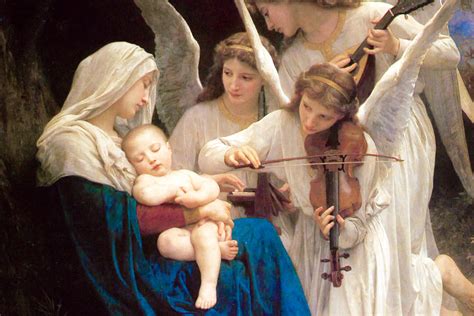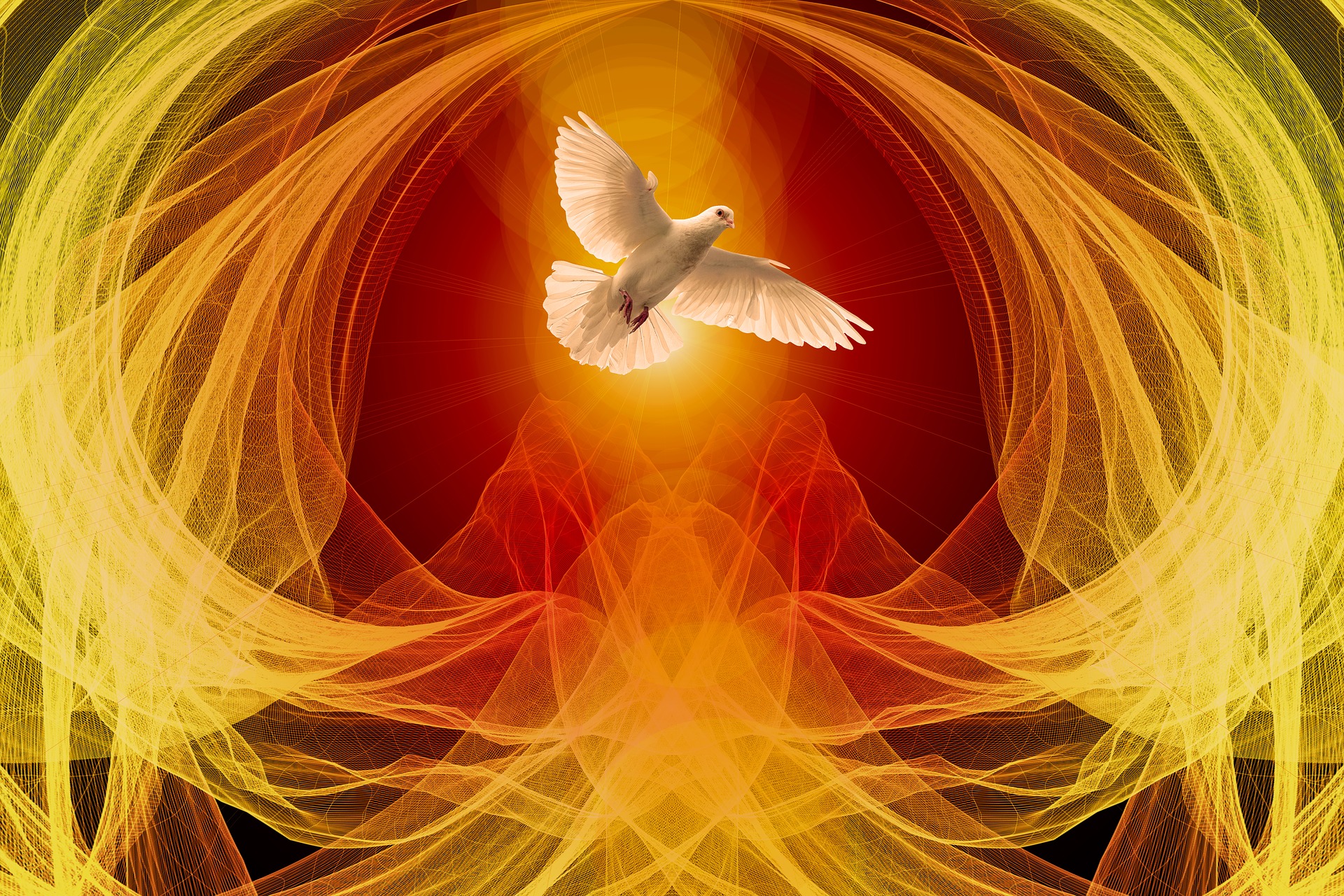Our Blessed Mother
- Post author:LisaMarie McNally
- Post published:August 6, 2020
- Post category:Ecumenical Corner
- Post comments:1 Comment
The“splendor of an entirely unique holiness” by which Mary is “enriched from the first instant of her conception” comes wholly from Christ. She is “redeemed in a more exalted fashion, by reason of the merits of her Son.”[1]
Mother Of God
In the Nicene Creed we say that Jesus is true God and true man. In being conceived by the Holy Spirit, He is the Son of God. In being born of a woman, He is completely human. In recognizing God as a Trinity, we recognize God the Father, God the Son, and God the Holy Spirit. Jesus, even as a man on this earth, was still the Second Person of the Trinity while He was on earth. Thus, He was God in Heaven and He was God when He walked among us.
Mary was truly His mother in every human way. She conceived Him in Her womb, bore Him, nursed Him, and raised Him. Because She is the mother of Jesus, and Jesus is God, Mary is the Mother of God and was declared thus by the Council of Ephesus in 431 A.D.
Mother Of The Church
Mary’s role in the Church is connected to Jesus’s role in the Church. Jesus’s work of salvation began at His conception. He came into this world to reconcile us with God and save us from our sins. He gave us the gift of the Catholic Church to continue His ministry and be His presence in the world after His ascension. The Church is Christ’s presence in the world today.
Mary was instrumental in the formation of the Church. She not only consented to be the Mother of the Savior, She also joined in His sacrifice on the cross by walking with Him and willingly bearing the suffering of Her Son for the redemption of the world. Then, after the resurrection and ascension of Jesus, She aided the Church through Her prayers and Her example. She received the Holy Spirit at the Annunciation and She prayed for the whole Church at receive Him. Her prayers were answered at Pentecost.
Because Mary is instrumental in the Church’s birth, She is the Mother of the Church. Just as She bore and nurtured Jesus, She also nurtured the Church from its birth, and thus is its Mother as well.
Mother Of The Whole World
The word “catholic” means universal. The Catholic Church is the universal church. It is open to everyone because Jesus came to save everyone. Jesus Himself gave us the Church and all of its sacraments. In being baptized by the Holy Spirit, we become the adopted brothers and sisters of Christ. As His brothers and sisters, we can now call His Father our Father and His mother our mother. Mary is truly our mother.
To emphasize this point, we turn to the Gospels. As Jesus hung on the cross, he gave Mary to all of us when He said, “Woman behold your son.” He did not use the name of John because it was not only John who was receiving Mary, it was all of us who were receiving her. We are all sons and daughters of the woman standing at the foot of the cross.
Jesus intended to give the entire world the gift of the “universal” Church. Because He gave His Mother to the Church, we know that He gave His Mother to the whole world. Mary as the Mother of the whole world intercedes for all of us just as She interceded for the early Church at
Pentecost.
Mary As Intercessor
Mary as a loving Mother, continually prays for us. Thus, it makes sense that we would pray for Her continued intercession. It is important to clarify that in praying for Mary’s intercession, we are not praying “to” Mary as we pray to God. We pray “through” Mary. We do not worship Mary; we worship only God. We adore God; we venerate Mary. In veneration, we honor Mary for Her holiness. We pray through Mary because as the Mother of God She is the one who is most worthy to stand before God and plead our cause.
Model Of The Church
We seek Mary as our intercessor because She is our role model. As a human being, She suffered everything that we suffer in life. She experienced the rejection of a woman pregnant before Her final marriage vows; She suffered homelessness when She and St. Joseph had to flee to Egypt after Jesus was born; She suffered the desperation of a mother searching for her lost child; She suffered the pain of losing Her beloved spouse; She suffered the sorrow of Her Son leaving home to fulfill His mission; She suffered knowing that He was rejected and ridiculed; She suffered excruciating agony at seeing Her Son tortured, mutilated, and murdered right in front of Her eyes; She suffered the heartbreak of burying Him and being totally alone in the world without human consolation. Mary suffered everything that a woman can possibly suffer. She therefore has extreme compassion on those who suffer today. She rushes to our side to comfort us in our afflictions. We look to Mary for Her compassion, Her prayers for us, and Her example. In every trial She remained faithful to God. She can teach us also to be faithful to God in all circumstances and She can teach us never to lose hope.
That is why we have Marian prayer. We pray through Mary, our Mother, our role model, our intercessor. Marian prayer includes praying the Rosary, wearing the Brown Scapular, and practicing the First Saturday devotion.
The Rosary
The Rosary is a set of prayers that were given by Mary to St. Dominic. In the Rosary, we meditate on the life of Jesus and Mary in the Gospels. We meditate on these mysteries because we want to imitate the example of Jesus and Mary. We focus on Jesus because we want to be more like Him. We meditate on Mary because She is the example of the perfect Christian. She can show us how we can also become more like Christ by imitating Her example.
The Brown Scapular
The brown scapular is a piece of cloth that is worn over the shoulders. This scapular was first given to St. Simon Stock in 1251 A.D. Mary appeared to him as Our Lady of Mount Carmel. Her promise to all who wear this scapular is: “Whosoever dies wearing this scapular shall not suffer eternal fire.” She further says, “Wear the scapular devoutly and perseveringly. It is My garment. To be clothed in it means you are continually thinking of Me, and I in turn, am always thinking of you and helping you to secure eternal life.”
This is not a magical formula. In wearing this scapular, we are conscious of Mary. We find ourselves thinking often “What would She do in this situation? How would She respond?” In stopping to reflect in this way, we slowly break bad habits and become more like our role model. When She sees us trying so hard, She prays even more intensely for us. This brings us even more graces and more mercy from God. The result is that we respond more to God and receive more mercy, This is why Her promise is fulfilled; no one who loves God and tries to please Him will go to hell.
The First Saturday Devotion
In Fatima, Portugal in 1917 Mary appeared to three shepherd children. (She is referred to as Our Lady of Fatima.) She asked people to practice a special devotion that would bring God’s grace. On the first Saturday of each month, go to the Sacrament of Reconciliation (between 7 days prior to, or 7 days after the first Saturday) and receive the Eucharist in a state of grace. Then after Mass, meditate for at least 15 minutes by praying the Rosary. This devotion brings blessings from God because we are receiving His presence in the sacraments and communicating with Him in prayer. This will lead us closer to Him. It brings joy to Mary’s heart to see people getting closer to God. All people who practice this devotion will receive these graces.
She Leads Us Home
Mary’s purpose as Mother, role model, and intercessor is to lead us closer to God. She brought Christ to the world by giving birth to Him. She now wishes to bring the world to Christ by calling us to prayer and receiving the sacraments Jesus gave us.[2]
Hail Holy Queen, Mother of Mercy, our life, our sweetness, and our hope. To thee do we cry, poor banished children of Eve; to thee do we send up our sighs, mourning and weeping in this valley of tears. Turn then most gracious advocate, Thine eyes of mercy towards us; and after this our exile, show unto us the blessed fruit of Thy womb, Jesus. O clement, O loving, O sweet Virgin Mary, pray for us O Holy Mother of God, that we may be made worthy of the promises of Christ. Amen.
[1] The Catechism of the Catholic Church, Liguori Publications, 1994. Paragraph #491.
[2]
The following references were used for this article:
The Catechism of the Catholic Church, Liguori Publications, 1994. Paragraphs #495-511, #963-975.
Garment of Grace, Immaculate Heart of Mary Publications, 1990. Has the Imprimatur of the Church.
A Woman Clothed with the Sun, by John J. Delaney, Doubleday & Co., 1961. Has the Imprimatur of the Church.





